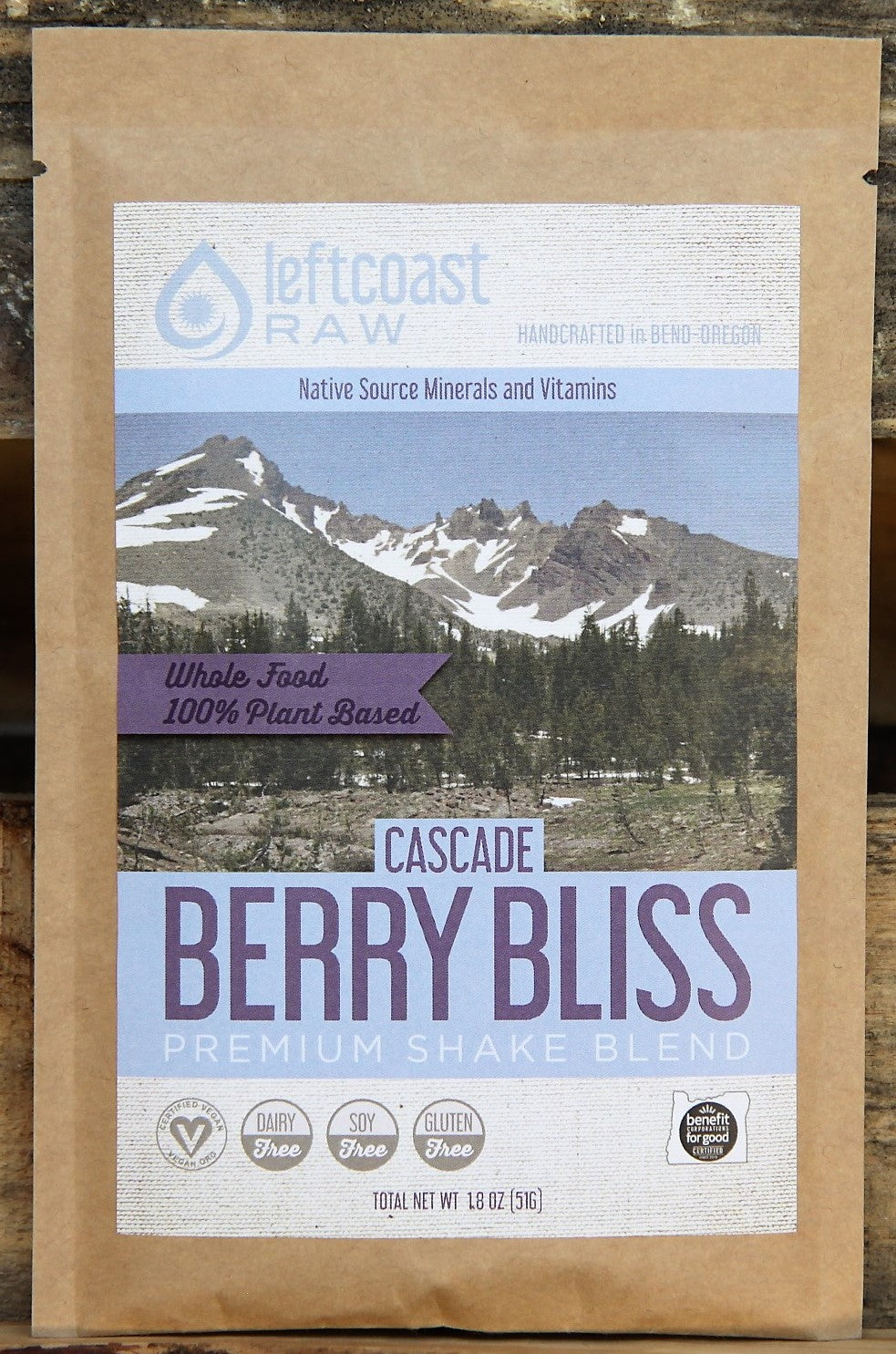Raspberries. All this in a little red berry.
by David Cascadden
May 19, 2016

Our Cascade Berry Bliss blend is loaded with freeze dried raspberries. Here's some great info from our friends @ The Worlds Healthiest Foods.
- One of the most fascinating new areas of raspberry research involves the potential for raspberries to improve management of obesity. Although this research is in its early stages, scientists now know that metabolism in our fat cells can be increased by phytonutrients found in raspberries, especially rheosmin (also called raspberry ketone). By increasing enzyme activity, oxygen consumption, and heat production in certain types of fat cells, raspberry phytonutrients like rheosmin may be able to decrease risk of obesity as well as risk of fatty liver. In addition to these benefits, rheosmin can decrease activity of a fat-digesting enzyme released by our pancreas called pancreatic lipase. This decrease in enzyme activity may result in less digestion and absorption of fat.
- Recent research on organic raspberries has now shown organic raspberries to be significantly higher in total antioxidant capacity than non-organic raspberries. Raspberries in the study were grown on farms in Maryland that had been previously certified as organic by the U.S. Department of Agriculture. A series of tests involving free radical scavenging all provided the same results: organic raspberries outperformed their non-organic counterparts in terms of their antioxidant activity. This greater antioxidant capacity was associated with the greater levels of total phenols and total anthocyanins found in organic versus non-organic raspberries. While there are many good reasons to purchase organic versus non-organic foods of all kinds, this study makes it clear that these reasons specifically hold true for raspberries in a profound way.
- You'll get significantly more antioxidant support by purchasing raspberries that are fully ripe. Recent studies have measured the total phenolic content, total flavonoid content, and anthocyanin content of raspberries harvested at varying stages of ripeness (from 50% to 100% maturity) and greatest overall antioxidant benefits were associated with full ripeness of the berries. Although it's possible for raspberries to ripen after harvest, this fruit can be highly perishable and can mold quite easily at room temperature. So your most risk-free approach for getting optimal antioxidant benefits from raspberries is to purchase them at full maturity, keep them refrigerated at all times at temperatures between 35-39°F (2°-4°C), and consume them very quickly (within 1 to 2 days after purchase).
Anti-cancer benefits of raspberries have long been attributed to their antioxidant and anti-inflammatory phytonutrients. In animal studies involving breast, cervical, colon, esophageal, and prostate cancers, raspberry phytonutrients have been shown to play an important role in lowering oxidative stress, reducing inflammation, and thereby altering the development or reproduction of cancer cells. But new research in this area has shown that the anti-cancer benefits of raspberries may extend beyond their basic antioxidant and anti-inflammatory aspects. Phytonutrients in raspberries may also be able to change the signals that are sent to potential or existing cancer cells. In the case of existing cancer cells, phytonutrients like ellagitannins in raspberries may be able to decrease cancer cell numbers by sending signals that encourage the cancer cells to being a cycle of programmed cell death (apoptosis). In the case of potentially but not yet cancerous cells, phytonutrients in raspberries may be able to trigger signals that encourage the non-cancerous cells to remain non-cancerous.
To read more about these little red wonders use this link.
http://whfoods.org/genpage.php?tname=foodspice&dbid=39
 en
en
David Cascadden
Author